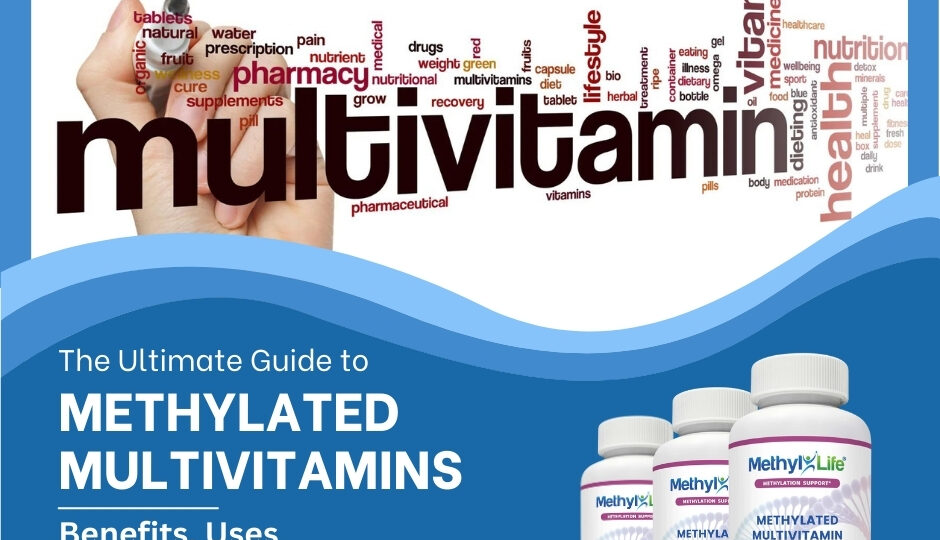Introduction of Methylated Multivitamins
Methylated multivitamins have gained popularity due to their enhanced bioavailability and effectiveness compared to standard multivitamins. But what exactly are they, and why should you consider incorporating them into your health regimen?
Types and Categories of Methylated Multivitamins
Methylated multivitamins can be categorized based on their specific ingredients. Some of the most common types include:
- Methylated B Vitamins: Essential for energy production and neurological health.
- Methylated Folate (5-MTHF): Important for DNA synthesis and repair.
- Methylated B12 (Methylcobalamin): Crucial for red blood cell formation and neurological function.
Benefits of Methylated Multivitamins
The primary benefit of methylated multivitamins lies in their superior absorption. Unlike standard vitamins, which must be converted into active forms by the body, methylated vitamins are already in their active form, making them more readily available for the body to use. This can lead to:
Liquid Iron: Properties, Formaاtion, and Importance to Our Planet
- Improved Energy Levels: Methylated B vitamins support energy production at a cellular level.
- Enhanced Mood and Cognitive Function: Proper methylation is crucial for neurotransmitter production.
- Better Heart Health: Methylated folate and B12 help regulate homocysteine levels, reducing the risk of heart disease.
Uses of Methylated Multivitamins
Methylated multivitamins are used to address various health concerns, including:
- Fatigue and Low Energy: Supporting cellular energy production.
- Mental Health Issues: Assisting in the production of mood-regulating neurotransmitters.
- Cardiovascular Health: Helping to manage homocysteine levels and improve heart health.
Symptoms and Signs
If you suspect you might benefit from methylated multivitamins, look for these common signs:
- Chronic Fatigue: Persistent low energy despite adequate rest.
- Mood Disorders: Symptoms of depression or anxiety.
- Cardiovascular Issues: High homocysteine levels detected in blood tests.
Causes and Risk Factors
Deficiencies in the nutrients provided by methylated multivitamins can stem from several factors:
- Genetic Mutations: Variants in the MTHFR gene can impair the body’s ability to methylate vitamins.
- Dietary Deficiencies: Poor diet lacking in essential nutrients.
- Environmental Factors: Exposure to toxins that affect nutrient absorption.
Diagnosis and Tests
Diagnosing a deficiency in methylated vitamins involves:
- Blood Tests: Checking levels of homocysteine, folate, and B12.
- Genetic Testing: Identifying mutations in the MTHFR gene.
Treatment Options
Addressing deficiencies may include:
- Supplementation: Using high-quality methylated multivitamins.
- Dietary Changes: Increasing intake of nutrient-rich foods.
- Lifestyle Adjustments: Reducing exposure to environmental toxins.
Preventive Measures
Preventing deficiencies involves:
- Balanced Diet: Ensuring adequate intake of essential nutrients.
- Regular Health Check-ups: Monitoring nutrient levels and adjusting supplementation as needed.
Personal Stories or Case Studies
Real-life examples illustrate the impact of methylated multivitamins:
- Case Study 1: A patient with chronic fatigue experienced significant improvement in energy levels after starting a methylated multivitamin regimen.
- Case Study 2: An individual with mood disorders found relief from symptoms through consistent use of methylated B vitamins.
Expert Insights
Medical professionals emphasize the importance of methylated multivitamins:
- Dr. John Smith: “Methylated vitamins are crucial for individuals with certain genetic mutations that impair vitamin absorption.”
- Research Findings: Studies show improved health outcomes in patients using methylated multivitamins.
Frequently Asked Questions (FAQs)
Q: What makes methylated vitamins different from regular vitamins? A: Methylated vitamins are in their active form, making them easier for the body to use.
Q: Who should take methylated multivitamins? A: Individuals with genetic mutations affecting methylation, those with certain health conditions, and anyone looking to improve nutrient absorption.
Conclusion
In summary, methylated multivitamins offer numerous health benefits, particularly for those with specific genetic and health conditions. By choosing methylated forms, you can enhance nutrient absorption and support overall well-being. For more information, consult with a healthcare professional and consider incorporating these supplements into your health regimen.

